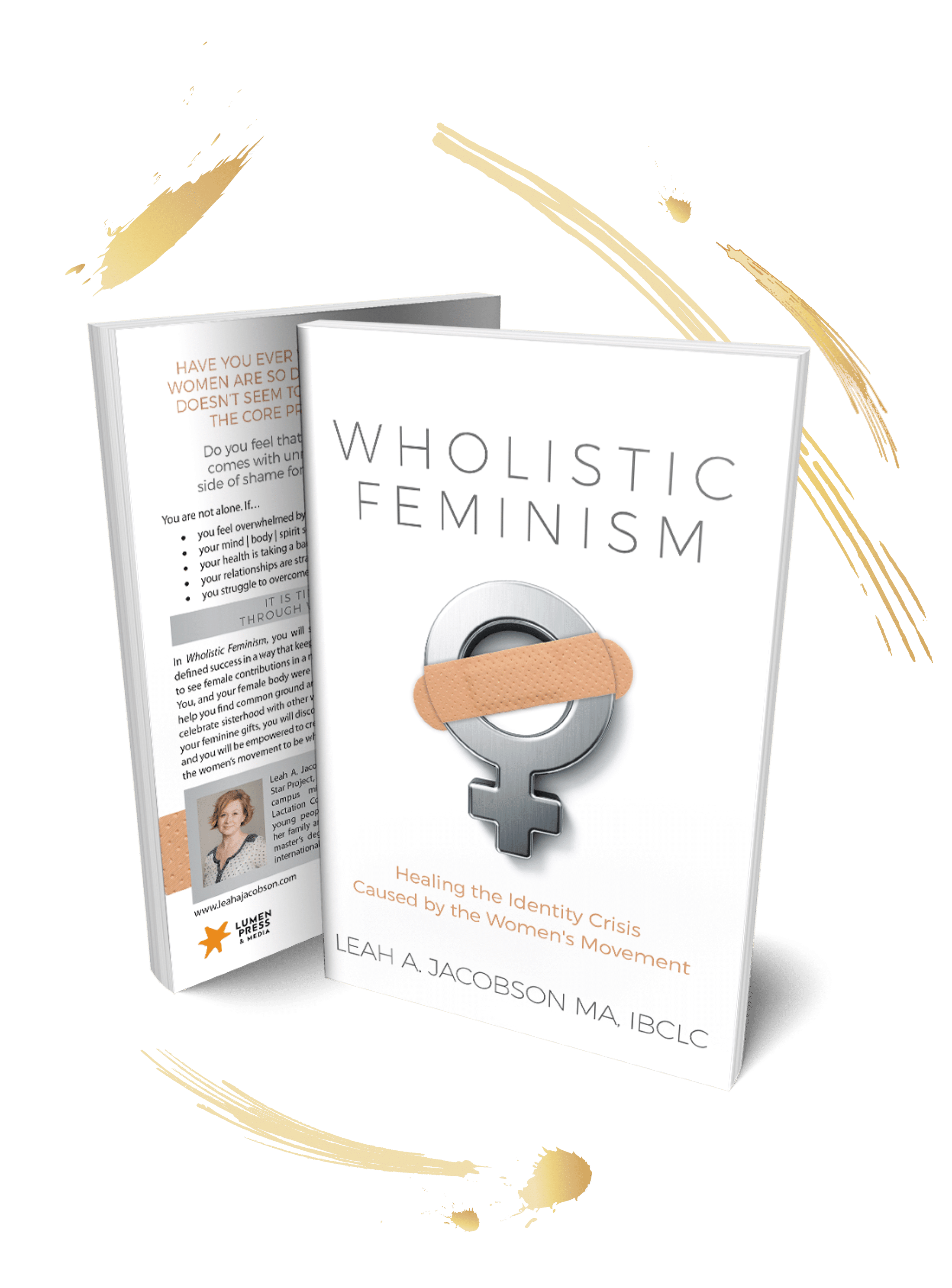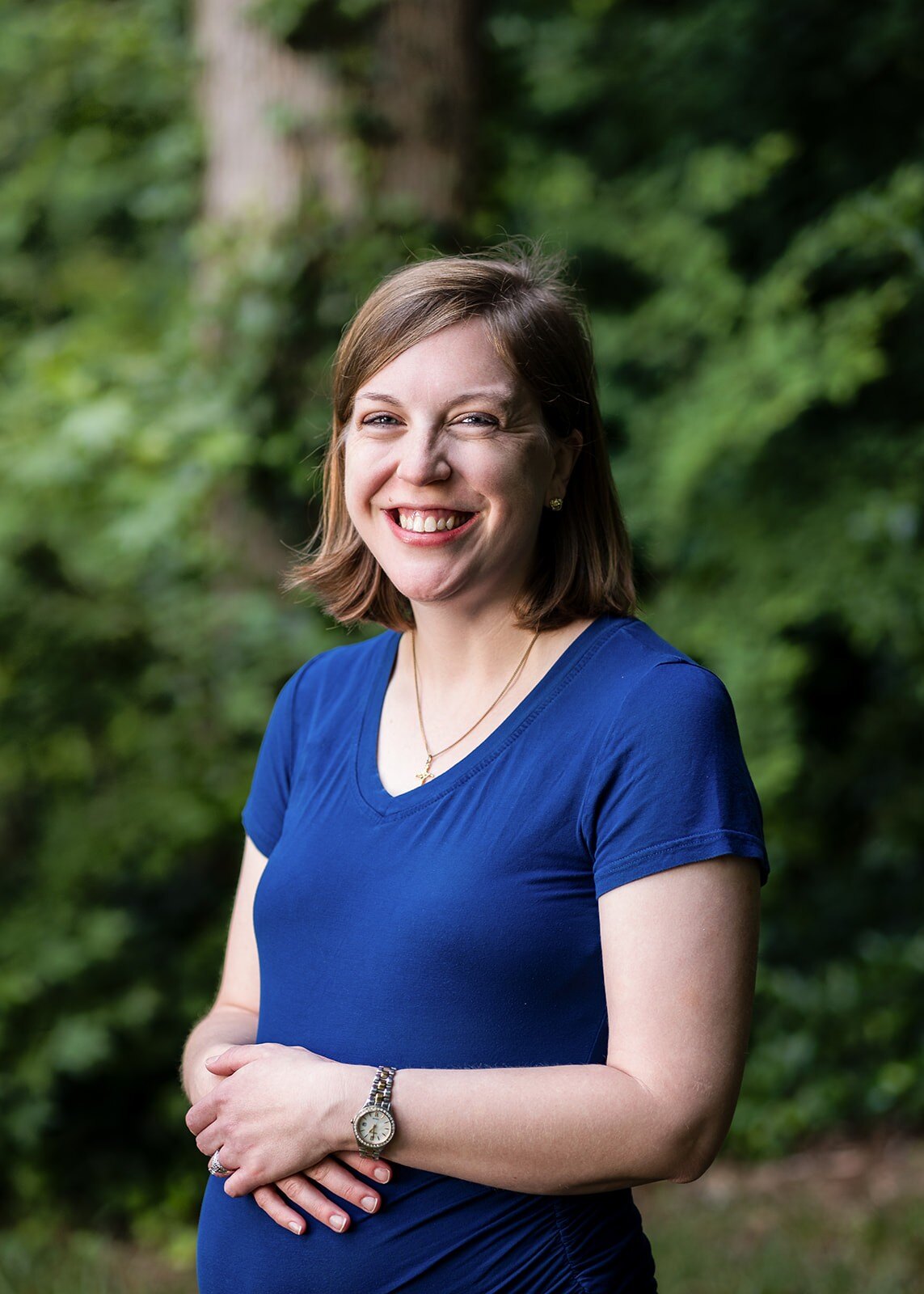
Taryn Oesch DeLong reviews Leah Jacobson's new book, written to reorient the women's movement.
For every woman who’s ever been told that her excruciating periods, irregular cycles, or premenstrual syndrome (PMS) was “normal” and given the birth control pill, Leah Jacobson has a message: Your body is good, and you can find healing.
Jacobson’s new book,Wholistic Feminism: Healing the Identity Crisis Caused by the Women’s Movement, is a culmination of her work as a lactation consultant and women’s health advocate. It dives into how the women’s movement went off the rails, arguing that second-wave feminism sought to make women more like men rather than valuing both genders equally for their unique gifts as well as their shared characteristics. She goes into some of the problems in women’s health as well as the pressure women face to “have it all” in a world designed to reward productivity and worldly achievement over all else. Most of all, Jacobson says that what modern women are missing is integration — a “wholistic” view of themselves as mind, body, and spirit, three facets that should work together to create one beautiful human being.

Searching for Healing
Jacobson examines this problem especially through the lens of health care, since her background is in this field. In addition to being a lactation consultant, she founded and is CEO of The Guiding Star Project, a family of care centers offering fertility planning, pregnancy and childbirth, breastfeeding and postpartum, and health education services. Jacobson argues that second-wave feminists, assisted by the pharmaceutical industry and many medical professionals, convinced society that women’s fertility should be suppressed with the birth control pill rather than embraced.
As a fertility awareness instructor myself, I found myself cheering when Jacobson wrote that women “are not victims of their bodies, but rather they have the ability to change the world for better through them” and that “we cannot cede to a definition of health that says it is acceptable to alter, suppress, or destroy a woman’s body for her well-being.” I won’t get into the science of fertility awareness versus birth control here; suffice it to say that based on my training and my own personal experience, I agree with Jacobson that much of women’s health care does not actually value women’s health — it seeks to alter rather than to heal.
Is Natural Always Better?
I only have two caveats in recommending this book. The first regards Jacobson’s heavy emphasis on the importance of breastfeeding, but my reading of these parts of the book was colored by my own experience. When my daughter was four weeks old, my lactation consultant told me, “At this point, if you switched to using formula exclusively, you wouldn’t be ‘giving up.’” By six weeks, I had to acknowledge that what I wanted—to nurse—wasn’t necessarily what was best for my daughter and me. It was a difficult experience that I’m still processing, and many women will likely take no issue with these parts of the book. And I am in total support of Jacobson’s efforts to provide more social and medical support to nursing mothers.
My other caveat is in regards to childbirth. Jacobson argues that epidurals and other forms of medical assistance during labor and delivery (including being in a hospital in the first place) are forced on women in a paternalistic system designed to keep women’s bodies from operating the way they are meant to (though she does concede that “cesarean sections absolutely save lives”). While I know there are women who are pushed into choices that they don’t want, Jacobson did not provide enough evidence to convince me that this is the norm — and hospitals save a lot of lives during labors and deliveries that have unexpected complications.
She also wonders why Catholic parishes promote natural family planning (NFP) but not natural childbirth, but I don’t see any inconsistency here; contraception is against Church teaching, but pain relief is not.
Escaping the Productivity Trap
Perhaps some of the most compelling writing in Wholistic Feminism is Jacobson’s discussion of the workplace. Secular research has found what Catholics have known all along: There are differences between men and women, and organizations and employees benefit from complementarity in the workplace. As St. John Paul II and St. Edith Stein both wrote, the world needs women and what women offer.
Unfortunately, as Jacobson points out, the workplace is not set up for women. With things like poor or no maternity leave policies, no support for child care, a lack of flexible work options, and the expectation to be available 24/7, it expects us to give up our fertility and our motherhood in exchange for our careers. Jacobson argues for an integrative approach that honors our primary vocation as wives and, then, physical and/or spiritual mothers.
We are raising our girls in a culture that says our productivity as an employee or worker is what gives us value to the outside world. ... What if we rejected this idea that productivity is the way to measure ‘success’ and instead considered that it is just as important to be truly present to others?
This presence is a gift women offer, and while it can’t be measured in key performance indicators or dollar signs, it is invaluable to our society.
When we learn to value women’s bodies, to offer healing rather than suppression or alteration, when we learn to value women’s minds and spirits, to honor the unique gifts we offer as physical and spiritual mothers, then, maybe our world will be a more just and peaceful place. Maybe then, we will all be more “whole.”
Copyright 2021 Taryn Oesch DeLong
Image: Canva Pro
About the Author

Taryn DeLong
Taryn DeLong is a full-time homemaker who lives outside Raleigh, NC with her husband and their little girls. She is also co-president of Catholic Women in Business and co-author of Holy Ambition: Thriving as a Catholic Woman at Work and at Home(Ave Maria Press, 2024). Follow her on LinkedIn or Instagram.


.png?width=1806&height=731&name=CatholicMom_hcfm_logo1_pos_871c_2728c%20(002).png)
Comments